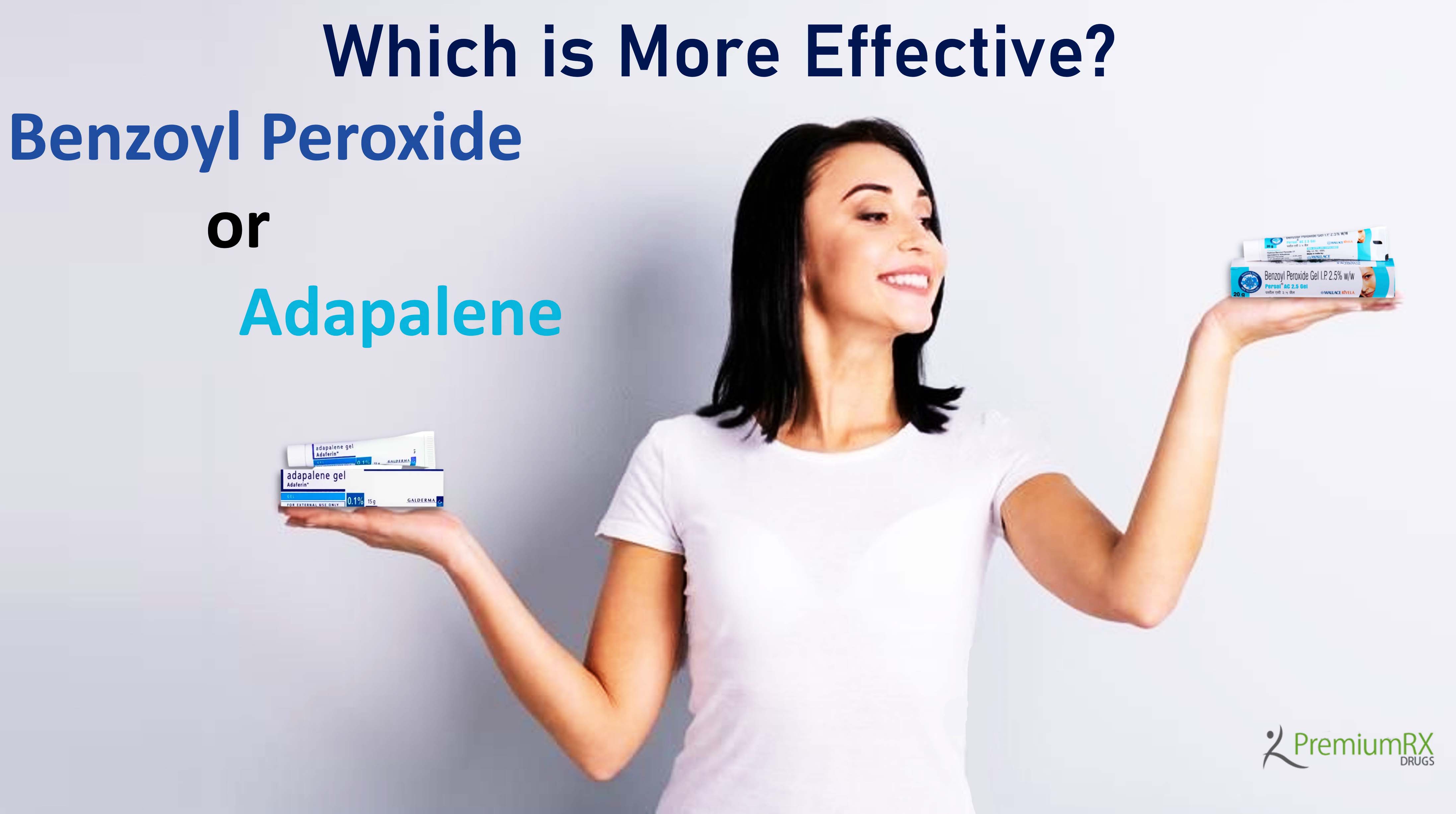Acne vulgaris is a dermatological condition characterized by forming comedones and inflammatory lesions. The antiacne treatment involves the reduction of lesions and the prevention of permanent scarring. The current line of treatment for mild to moderate acne is topical medications with antimicrobials and retinoids. Topical treatments such as benzoyl peroxide and Adapalene cream are popular in treating mild to moderate acne vulgaris. Studies have shown that to treat acne, the combination of products containing benzoyl peroxide and topical antibiotics or Adapalene is more effective than either medication used alone.
What is Benzoyl Peroxide
Benzoyl peroxide is an over-the-counter topical ingredient and an FDA-approved pharmaceutical agent for treating acne vulgaris. It is bactericidal with activity against acne on the skin and within the hair follicles. Benzoyl peroxide is most effective when used combined with other acne vulgaris therapies. Compared to other topical antibiotics, drug resistance has not appeared to develop with benzoyl peroxide. After applying 10% for two weeks, the amount of acne in hair follicles significantly decreases. Benzoyl peroxide is available as prescription formulations in 2.5%, 5%, ad 10%. Available preparations include gels, cream, lotions, cleansing bars, and other solutions. Many popular skincare brands also manufacture products that contain benzoyl peroxide but at low strength. These products are available to buy in pharmacies, supermarkets and shops.
Key facts
- Benzoyl peroxide 5% formulation takes around four weeks to begin working.
- You will usually use it once to twice a day.
- The most common side effect of the topical formulation is skin irritation. Use it less often, then increase the application as your skin gets used to it.
How and when to use it
Benzoyl peroxide is for topical use only. Put a thin layer all over the affected areas. You will usually use the gel once or twice daily. If you have sensitive skin, use the product once daily before bed. Always wash your hands before and after using the medicine. If your skin becomes dry or begins to peel, try using benzoyl peroxide formulation less often. Use it on alternative days until your skin gets used to it. The active ingredient can bleach or discolour your hair, as well as your clothes, towel, and bedding. Ensure you keep your benzoyl peroxide 5 formulations from hair and coloured fabrics.
What is Adapalene
Adapalene is a topical retinoid extremely helpful in treating mild to moderate acne. It is the least effective medicine among other topical retinoids we use to treat acne vulgaris. However, the antiacne agent has some advantages over retinoids as it is more stable and leads to fewer concerns. Further, the compound is used as a first-line agent for acne conditions. Adapalene 1 gel treats acne deep in the skin’s pores, prevents the formation of new acne, resulting in reduced acne, and restores your natural skin’s texture and tone.
Key facts
Adapalene is a retinoid. Topical retinoids play a crucial role in treating acne. Adapalene works by adjusting the speed of skin cell turnover to ensure your skin follows the right process, forming a healthier environment for the skin. This prevents the clogging of skin pores and targets acne before it even starts.
The most common side effects associated with the use of redness are irritation, itching, dryness, burning, and photosensitivity. These are mild and common side effects that tend to decrease over time. Severe allergic reactions are with these medications.
Adapalene vs Benzoyl peroxide
Adapalene and benzoyl peroxide are well-known medications for treating acne skin. Both skin care agents show significant results, but there are some differences. The key difference between adapalene and benzoyl peroxide is that Adapalene is a retinoid, whereas benzoyl peroxide is an antibiotic and skin-peeling agent. Moreover, both are the most effective topical agents to treat acne.
However, according to scientific studies, Adapalene was more effective than benzoyl peroxide when treating non-inflammatory and inflammatory acne lesions. Also, an Adapalene formulation was found to be comparatively safer than benzoyl peroxide because the patients treated with Adapalene had lesser side effects than those treated with benzoyl peroxide. It is always best to consult a dermatologist before prescribing benzoyl peroxide or Adapalene.
Summary
Both adapalene and benzoyl peroxide are well-known names when it comes to treating acne-prone skin. They show significant results, but there are some differences between these two skincare agents. One of the important differences between adapalene and benzoyl peroxide is that Adapalene is a retinoid, whereas benzoyl peroxide is an antibiotic formulation, which is also a skin-peeling agent. Both are considered among the most effective acne remedies, but a study revealed that Adapalene is more effective than a benzoyl peroxide formulation. So, it is always a wise decision to consult a dermatologist before you wish to choose the best antiacne treatment for yourself.
Marie
Latest posts by Marie (see all)
- Revize Micro Gel 0.025% | Uses, Price, Side effects - April 9, 2025
- What is Evalon Cream: How to Apply, Benefit, who Can Use - April 4, 2025
- Understanding Avanair 200 mg: A Comprehensive Guide - April 4, 2025




